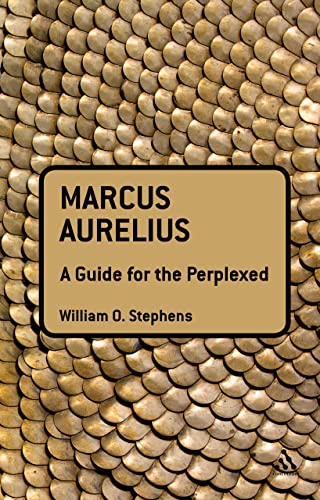It is a good thing that a book like this exists, but in reading it I can’t help but think that anyone who can appreciate this particular book is going to find it unnecessary. Is the writing of Marcus Aurelius so hard to understand? I don’t happen to think that his writing is too difficult to understand for those who approach his work with some knowledge of Stoicism and some degree of skepticism for the overheated claims that people make for Marcus’ wisdom as a sage emperor. This book certainly is more clear-eyed than most about Marcus, recognizing his philosophical interests but at the same time not being blind to his logical fallacies as well. And this certainly makes the book a more enjoyable read than it would otherwise have been. In fact, I liked this book a great deal. Indeed, this book did a very good job at putting Marcus Aurelius in a larger context and pointing out what he was referring to in some of his statements, all of which helps indicate what it is that he had read and appreciated, and that is something worth knowing for any good author.
This book is a relatively short one at just over 150 pages of reading material. The book begins with a list of illustrations and acknowledgements and then moves on to discuss Marcus Aurelius as a man, an emperor, and as a thinker (1), viewing his performance of different roles over the course of a long and complex life. After that the author looks at the importance of Heraclitus and Epicetetus on the thinking of Aurelius (2), starting with Heraclitus’ views on the logos, sleeping, the harmony of opposites, the river, as well as fluxes and fortitude and then moving on to Epicetetus’ views on Socrates as a stoic hero, dualism, being at death’s door, and the theater of life. After that the author looks at the matter of wholes an parts in Aurelius’ thinking (3), including the question of the role of the citizen in the state. After this comes a discussion of time, transience, and eternity (4) as it relates to Aurelius’ writing and thinking as we know it, as well as a final chapter on virtues, vices, and junk (5). The book ends with an epilogue on the soul of a stoic and then contains an appendix that discusses the portrayal of stoicism in the film Gladiator, as well as notes, a glossary, suggestions for further reading, and a subject and name index.
In reading this book, does one get the sense of knowing Marcus Aurelius better? I must admit, this book does not answer the sort of questions I would most have about him, but that is by no means a bad thing. Who can know a Roman emperor personally almost two thousand years in the future, and who would want to anyway? To be sure, there are some people who draw a great deal of insight and encouragement from his writing and thinking and that is something that we can recognize even if we do not necessarily understand or approve of it entirely. Those who read this book will certainly understand Marcus Aurelius’ writings better and may find something in the many roles the man undertook to be an inspiration for one’s own life. To be sure, the emperor and I have very different views of virtue and vice and junk, for example, but one can respect those one disagrees with, and that is certainly worth something. In times such as our own where people routinely disregard any sort of insight from those that they disagree with, it is especially important for us to be otherwise, and this book certainly helps with that.

